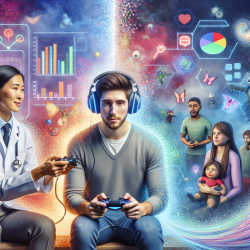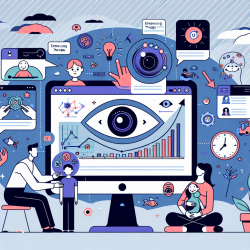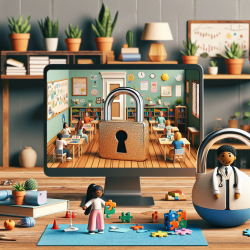Adolescent anxiety is a prevalent mental health issue, affecting up to 17% of teenagers in Western countries. This condition can lead to severe long-term problems such as school dropout, lower academic performance, and other mental health disorders. The current focus in mental health has primarily been on treatment rather than prevention, despite the significant benefits of early intervention. A recent randomized controlled trial (RCT) explored a novel approach to anxiety prevention through the use of an immersive 3D video game, Dojo, designed to reduce anxiety in adolescents.
The study involved 138 adolescents aged 11-15 with elevated anxiety levels. Participants were randomly assigned to play either Dojo or a control game, Rayman 2: The Great Escape. Both games were played over six sessions, with anxiety levels assessed at pre-test, post-test, and three-month follow-up.
The key findings from the study are as follows:
- Anxiety symptoms significantly decreased in both the Dojo and control groups at follow-up.
- No significant differences in anxiety reduction were observed between the two groups.
- A steeper decrease in personalized anxiety symptoms was noted in the Dojo group compared to the control group.
- No differences in outcomes were found between boys and girls or across different age groups.
Despite the lack of significant differences between the two groups, the study highlights the potential of video games as a viable tool for anxiety prevention. Here are some practical takeaways for practitioners:
Implementing Video Games in Practice
1. Engagement: Video games can address the engagement challenges often faced in conventional prevention strategies like Cognitive Behavioral Therapy (CBT). Adolescents are more likely to engage with interactive and immersive video games than traditional therapy sessions.
2. Practice: Video games offer repeated practice opportunities for skills such as emotion regulation and stress management. These skills can become automatized through consistent practice within the game environment.
3. Accessibility: Video games can be played anywhere and anytime, overcoming barriers related to geographic location, physical or psychological limitations, and lengthy waiting lists for traditional therapy.
4. Cost-Effectiveness: Video games are generally more cost-effective than traditional CBT programs, making them a viable option for schools and families with limited resources.
Encouraging Further Research
The study also underscores the need for further research in several areas:
- Choosing appropriate control conditions to ensure that observed effects are due to the intervention itself.
- Exploring the duration and design of video game interventions to maintain adolescent engagement and motivation.
- Investigating the potential benefits of individual versus group-based interventions.
- Assessing the long-term effects of video game interventions on anxiety and other mental health outcomes.
Practitioners are encouraged to consider integrating video games into their practice as a supplementary tool for anxiety prevention. Additionally, staying informed about ongoing research in this area can help refine and improve intervention strategies.
To read the original research paper, please follow this link: A Randomized Controlled Trial to Test the Effectiveness of an Immersive 3D Video Game for Anxiety Prevention among Adolescents.










